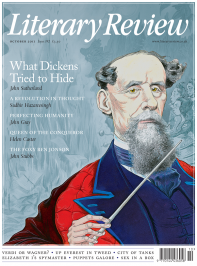Peter Marshall
Dynasty
Winter King: The Dawn of Tudor England
By Thomas Penn
Allen Lane/The Penguin Press 480pp £20
It is hard to understand why the reign of Henry VII has for so long had the reputation of being one of the most boring periods of English history. Perhaps it is because successive generations of A-level students have been made to wrestle with the technical aspects of bonds and recognisances, and to memorise the contents of trade treaties called things like the Malus Intercursus. In fact, Henry’s story is truly remarkable and often engrossing. He was a king who, in the final stages of the Wars of the Roses, as Thomas Penn puts it, ‘appeared out of nowhere’ – an obscure exile who seized the throne from Richard III in 1485 with a single, desperate throw of the dice. His enjoyment of it might easily have been brief. He faced a succession of serious challenges, not merely from the pretenders Lambert Simnel and Perkin Warbeck (reduced, unfairly, to comic-opera status by 1066 and All That), but from Cornish rebels, hostile foreign powers, and bona fide Yorkist heavyweights such as the Earl of Suffolk. Treason, real and imagined, festered in the highest circles of the land throughout his reign. Henry’s response was to enmesh his leading subjects in layers of financial threat and obligation, employing the talents of a crew of ruthless cronies operating through the euphemistically titled Council Learned in the Law. Resentments quietly mushroomed. That Henry’s son succeeded him, unchallenged, in 1509 must be regarded as a triumph against the odds.
It is pushing things a bit to suggest, as Penn does in his introduction, that this story has hitherto been ‘largely untold’; his own endnotes and acknowledgements reveal a heavy debt to recent academic scholarship. Nor does the account here contain many startling new revelations or original insights

Sign Up to our newsletter
Receive free articles, highlights from the archive, news, details of prizes, and much more.@Lit_Review
Follow Literary Review on Twitter
Twitter Feed
Though Jean-Michel Basquiat was a sensation in his lifetime, it was thirty years after his death that one of his pieces fetched a record price of $110.5 million.
Stephen Smith explores the artist's starry afterlife.
Stephen Smith - Paint Fast, Die Young
Stephen Smith: Paint Fast, Die Young - Jean-Michel Basquiat: The Making of an Icon by Doug Woodham
literaryreview.co.uk
15th-century news transmission was a slow business, reliant on horses and ships. As the centuries passed, though, mass newspapers and faster transport sped things up.
John Adamson examines how this evolution changed Europe.
John Adamson - Hold the Front Page
John Adamson: Hold the Front Page - The Great Exchange: Making the News in Early Modern Europe by Joad Raymond Wren
literaryreview.co.uk
"Every page of "Killing the Dead" bursts with fresh insights and deliciously gory details. And, like all the best vampires, it’ll come back to haunt you long after you think you’re done."
✍️My review of John Blair's new book for @Lit_Review
Alexander Lee - Dead Men Walking
Alexander Lee: Dead Men Walking - Killing the Dead: Vampire Epidemics from Mesopotamia to the New World by John Blair
literaryreview.co.uk